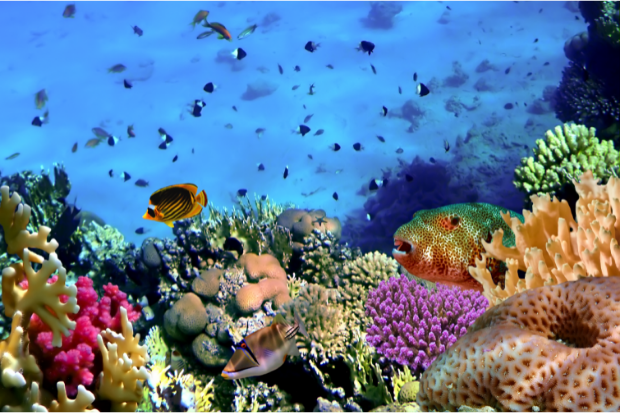All around the world coral reefs are under threat. To protect them, scientists and non-government organizations are exploring several avenues: organic tissue imitating the structure of corals, investigating survival strategies of different species, reproducing coral in a laboratory setting.
Among the most threatened underwater species, coral reefs are at the top of the list. Essential to biodiversity and human health, coral reefs are severely tested by marine heatwaves, which are becoming increasingly frequent due to climate change. Rising water temperatures lead to ocean acidification, which causes significant thermal stress to corals (which eventually leads to bleaching, or the death of these reefs).
According to a study published Feb. 1 in the journal PLOS Climate by researchers from the University of Leeds, 99% of the world’s corals will not withstand climate change. One of the most urgent solutions to protect corals is of course to drastically reduce greenhouse gas emissions.

Study different coral species to better understand them
But according to research conducted by scientists at the University of Leeds, meeting the Paris Agreement’s most ambitious target (keeping global temperatures below 1.5°C) will not be enough to ensure coral survival in the long term.
“Promoting adaptation to higher temperatures and facilitating migration will instead be needed to secure coral reef survival,” the authors of the work believe.
It’s a point of view that echoes the findings of several scientific studies conducted in recent years around the world to ensure the protection of corals. Biologists from the University of Wisconsin-Madison in the United States published a study at the beginning of 2022, in which they studied the skeletal structure of three different species of coral in order to determine which one is most resistant to the phenomenon of ocean acidification.
The scientists discovered that this resistance could be linked to the speed of the coral skeleton’s crystallization, which is composed of amorphous calcium carbonate. The faster the speed of crystallization, the more likely it is to be resilient in the face of ocean acidification.
One of the other avenues being investigated by scientists to increase coral reef resilience is their microbiome. Researchers from Penn State University have identified microbes potentially capable of enhancing the responses of coral species to thermal stress, suggesting that this could be an area that could help them survive.
Coral support
Groundwork is being undertaken to fund rescue plans to protect coral reefs. A solution that consists first and foremost in protecting the underwater areas with corals from human activities that could harm them, such as overfishing or mass tourism. In 2021, Thailand decided to ban chemical sunscreen components that are toxic for marine life, following the example of Palau and Hawaii.
Another angle of action consists in covering some reefs with organic, biodegradable fabrics that imitate the composition of corals. An experiment is currently underway in Guadeloupe. The idea is to create nets intended to provide a refuge for coral eggs to fix them and protect them from predators. The NGO Ocean Quest Global has developed a method of cuttings to rehabilitate the natural habitat of the reefs.
Meanwhile, a recent exploration mission supported by UNESCO offers hope. The divers discovered very rare coral reefs, immersed at a depth of more than 30 meters on the island of Tahiti. What was so special about them? They were found to be in perfect health.
One of the reasons why these reefs have been spared by global warming could be linked to the depth at which they are immersed. Temperature sensors have been placed in the area of the corals concerned, in order to better understand how and why these reefs have resisted climate change, as well as in the hope of finding others. JB
RELATED STORIES:
The Winter Olympics are under threat from climate change
Cats are responsible for over 100 fires in three years in South Korea


